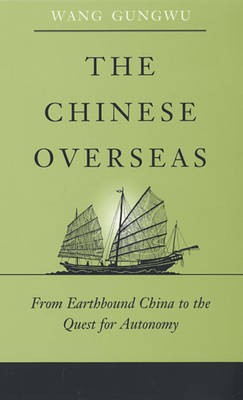
- Retrait gratuit dans votre magasin Club
- 7.000.000 titres dans notre catalogue
- Payer en toute sécurité
- Toujours un magasin près de chez vous
- Retrait gratuit dans votre magasin Club
- 7.000.000 titres dans notre catalogue
- Payer en toute sécurité
- Toujours un magasin près de chez vous
Description
The Chinese overseas now number 25 to 30 million, yet the 2,000-year history of Chinese attempts to venture abroad and the underlying values affecting that migration have never before been presented in a broad overview. Despite centuries of prohibition against leaving the land and traveling and settling overseas, the "earthbound" Chinese--first traders, then peasants and workers--eventually found new sources of livelihood abroad. The practice of sojourning, being always temporarily away from home, was the answer the Chinese overseas found to deal with imperial and orthodox concerns. Today their challenge is to find an alternative to either returning or assimilating by seeking a new kind of autonomy in a world that will come to acknowledge the ideal of multicultural states.
In pursuing this story, international scholar Wang Gungwu uncovers some major themes of global history: the coming together of Asian and European civilizations, the ambiguities of ethnicity and diasporic consciousness, and the tension between maintaining one's culture and assimilation.Spécifications
Parties prenantes
- Auteur(s) :
- Editeur:
Contenu
- Nombre de pages :
- 160
- Langue:
- Anglais
- Collection :
- Tome:
- n° 7
Caractéristiques
- EAN:
- 9780674009868
- Date de parution :
- 30-09-02
- Format:
- Livre broché
- Format numérique:
- Trade paperback (VS)
- Dimensions :
- 115 mm x 185 mm
- Poids :
- 145 g







